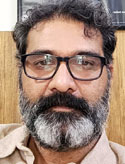
By Arshad Alam, New Age Islam
1 September 2016
Despite the rhetoric of Islamic egalitarianism, caste remains one of the important operative categories among Indian Muslims. Just one look at matrimonial columns underlines the importance given to caste endogamy among Indian Muslims. Moreover, movements of low caste Muslims are increasingly playing an important political role in states like Bihar and parts of Uttar Pradesh.
It is well known that Muslims are divided into Ashraf (high caste) and Ajlaf (low caste) and that the majority of Indian Muslims figure in the central or various state OBC lists. What is perhaps not so well known is that increasingly some Muslims are calling themselves as Dalits (ex-untouchables) and are demanding the same benefits as accrue to Scheduled Castes. Who are these Dalit Muslims and does untouchability exist in Muslim society?
Dalit Muslims are those converted to Islam from ex-untouchable castes. They constitute a third category called the Arjals (from the Arabic rizl, meaning of no use) who occupy the lowest rung of Muslim society. These castes are considered unclean even by the lower caste Ajlafs. Some of these castes are Lalbegis (scavengers), Dafalis (the drum makers), Hawari (cleaner), Dhobi (washerman), Halalkhor, Gadhedi, Bakho, Machuara, Nalband, Bhatiara, Gorkan, etc.
As is clear from their caste names, these Muslim castes are known primarily through their ‘unclean’ occupation. Some of these castes, like the Bakho and the Nut, don’t even have a permanent dwelling. It is not that these Muslim castes are of recent origin. In fact, the census of 1911 and 1931 mentions many more Muslim castes having similar occupation and social status as the Hindu ex-untouchable castes. There are hardly any studies done on these Muslim castes. From whatever little is known about them, it is quite clear that they are socially and educationally worst off sections among Indian Muslims.
Although sections of Muslims speak of Muslim brotherhood, yet these Muslim castes are forced to live on the margins of Muslim localities and social contact with them is minimal. There are examples where these Muslim castes even have their separate mosques. In many cases they even carry their caste identity after they die since upper caste Muslims do not allow them to be buried within the same graveyard.
At present these Muslim castes derive benefits as OBCs. But due to their abysmal social and educational capital, they can hardly compete with other OBC castes such as the Yadavs or the Ansaris. Moreover, these castes, by virtue of living on the margins of poverty, cannot even mobilize their own resources to better their life conditions. The only way in which they can be brought into the mainstream is by granting them the status of Scheduled Castes. Only through such a measure they can be assured of schools in their locality as well as of the other benefits which accrue to SCs.
Opponents of this idea, both on the Hindu and Muslim Right, have argued that since there is no untouchability in Islam, so there can be no category of Dalit Muslims. This orientalist argument privileges religious scripture over sociological contexts in which Islam in India took roots. Historically Indian Islam accommodated itself to the dominant operational reality of the caste system as a result of which those who converted to Islam from ex-untouchable castes did not see an end to their discrimination.
Moreover, there is no concept of untouchability in Buddhism and Sikhism also, but Dalit converts to these religions are given SC status. Apart from the fact that the Indian state treats these religions as ‘Indic’ and others such as Islam and Christianity as ‘non-Indic’, the problem is also with the religious interpretation of Islamic scholars with regard to caste. “Indic religions” is a loose concept to signify that Hinduism, Jainism, Buddhism and Sikhism are all religions of the same soil and therefore Dalits could exist within these religious communities. The case of Islam and Christianity is different. They did not originate in the Indian soil and therefore their Dalits are denied the benefits which they should rightfully deserve.
The problem is also confounded by the fact that Muslim elite never accepted caste within their midst. But this was sheer hypocrisy: The Ulema had in fact long back justified caste, through their sophisticated interpretation of scriptures, as very much an Islamic institution. Ashraf Ali Thanwi in fact institutionalized it through his writings wherein he wrote that distinctions based on birth were intrinsic to Islam. In the Indian context it meant legitimizing caste distinctions and discrimination. The point of all this is that despite religious legitimation for caste discrimination, the policy makers look the other way when it comes to including Dalit Muslims within the ambit of Scheduled Caste.
Not granting SC status to Dalit Muslims then is tantamount to discrimination in the name of religion. There is also no Constitutional barrier to include lowest caste Muslims into SC. All that needs to be done is to revoke the Presidential Order of 1950. Indian Constitution has historically been sensitive to the needs of the oppressed and marginalized. The Indian state has partially recognized this constitutional spirit by implementing various measures of protective discrimination and through its various policies to help the needy and marginalized. Its time they recognize the marginalization of Dalit Muslims and declare them as Scheduled Castes. Such a move will only go a long way to strengthen the secular fabric of the state.
Arshad Alam is a NewAgeIslam.com columnist.




 Moderate Islamist here
Moderate Islamist here


0 comments:
Post a Comment